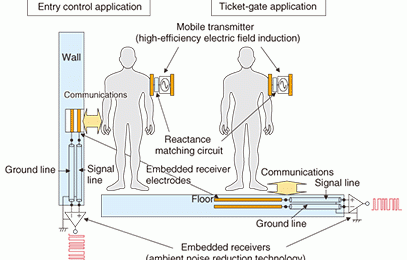Educators often say that knowledge is only the foundation when it comes to teaching kids. The real learning comes from developing skills needed to put that knowledge into practice. So knowledge plus well-honed skills equals learning. It’s interesting to note that the foundation accounts for only about 20 percent of the learning formula. If this formula were applied to marketing strategies, there would probably be a huge increase in happy employees in the work place. And you know what they say, “Happy employees make cash registers sing!” Well, they might not be saying that now, but they will.
According to Kathy, a Health Services Coordinator for Greenville County High Schools, developing skills involves taking knowledge and making it applicable to real life.
- Knowledge is just information until students learn to effectively communicate how the knowledge affects them and others around them.
- Self-directed learning adds new uses and makes it relevant.
- Approaching knowledge with critical thinking and problem solving skills leads to innovation and experimentation.
- All of these activities reinforce skills. Adding rigor to the mix, builds confidence and competency.
Let’s go back to those happy employees for a moment. According to Malcolm Tatum, a contributor for HowToDoThings.com, regardless of whether you run a mom-and-pop store or operate a grand scale Fortune 500 conglomerate, employee loyalty and devotion are among your best assets.
So how can you build loyalty to your brand and why is it so important?
The why is easy. Employees who believe in the quality of products or services tend to be better ambassadors. Loyalty starts with personal connectivity with the company mission and products. Ambassadors tend to produce more sales.
The how is a more complicated. Like the system of expanding on knowledge with skill developing strategies in the classroom, businesses lean on Human Resource officers to promote teamwork and loyalty among the workers. The HR system must address corporate and employee needs, develop tools for advancement and training and establish an atmosphere of mutual respect. According to a USA Today article written by Laura Petrecca, employees want to know their employer cares about them and their engagement level. A genuine thank-you is enough to spark morale and boost loyalty.
So what can Human Resource Officers do to build brand loyalty and teamwork?
Utilizing human resource management software may be a great starting place. By streamlining the HR department, more focus can be directed toward brand loyalty and team building. Four more tips follow.
#1—Allow Employees Avenues for Skill Development
This involves educating employees about the products and services. It might include cross training with other departments so the team is more connected. When employees share the workload and reap the benefits together, the group becomes as important as the individual.
#2—Communicate Freely
While no one expects every employee to have access to proprietary information; sharing sales goals and revenue numbers keeps employees informed. It lets your staff know you trust them and depend on their commitment.
#3—Reward Outstanding Service
Develop programs to reward employees for outstanding service. If money is tight, designated garage parking during the winter months, half-day Fridays or other tangible rewards will show their performance matters.
#4—Build Relationships
Host an “open floor” day and let your employees share their positive experiences with the team, as well as the missus. Discuss ways marketing and customer service can work together to deliver more of those supreme experiences.
Follow the educational model. Provide knowledge that promotes commitment to the brand before you send your sales force into the field. Fostering teamwork and building brand ambassadors supports team based marketing.





